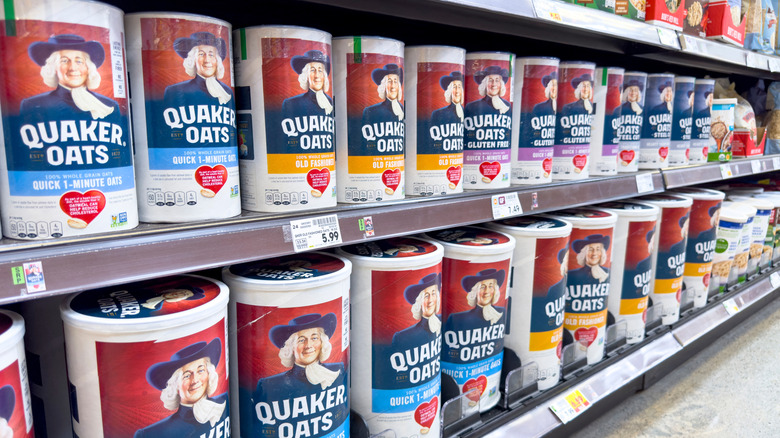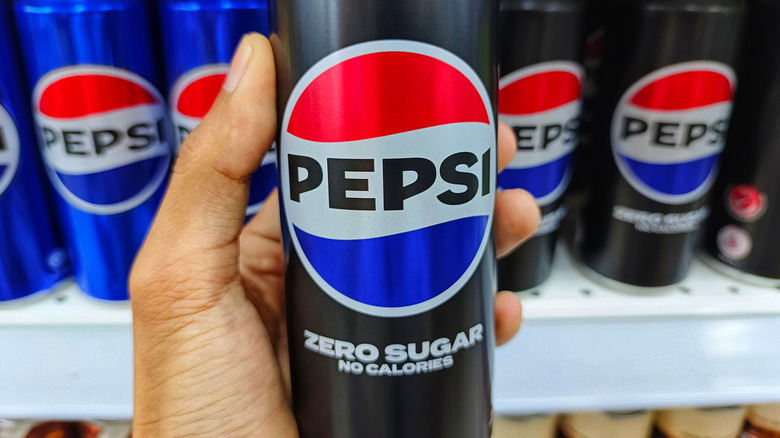The Massive Company That Owns Quaker Oats Might Surprise You
Quaker Oats is such a household name, you might be tempted to think that the company is completely independent. However, much like how another beverage company secretly owns Johnnie Walker, Quaker Oats is owned by a bigger corporation that's even more well known: PepsiCo. Although Quaker Oats was founded by Henry Parsons Crowell way back in 1877, and is renowned globally for being the first cereal brand to register a trademark with the U.S. Patent Office, it was acquired by PepsiCo back in 2001.
Interestingly, despite Quaker being known nationwide for its oatmeal and cereals, what actually motivated Pepsi to acquire the company was the former's leading sports drink brand, Gatorade. The move was necessitated by a shift in consumer taste at the time, which made Pepsi think about diversifying towards non-carbonated beverages. Gatorade, a brand that a University of Florida study reports went from being worth $100 million in 1983 to more than $2.2 billion at the time of acquisition, had become a prime target for Pepsi, especially as a means to fight its rival Coca-Cola in the segment. Nonetheless, Pepsi shelled out around $14 billion to acquire Quaker, and has been integrating the brand's wide selection of cereals and snacks into its sizable portfolio of food brands ever since.
PepsiCo owns a bunch of other brands, at least for now
Apart from Quaker, PepsiCo also owns several other popular brands and product lines — including a range of other food products. Expanding beyond the beverage world set Pepsi apart from Coke in the eyes of investors, and the company's diversification tactics began with its historic 1965 merger with Frito-Lay. Pepsi has also had 100% ownership in brands like Mountain Dew and Mug Root Beer, and it even acquired SodaStream for $3.2 billion in 2018, further showing the company's desire to diversify its holdings.
Moreover, Pepsi has non-controlling stakes in Tropicana as well, although it has sold its majority stake in the brand as well as other juice brands, worth $3.3 billion, to French firm PAI Partners. Navigating the dangers of over-diversification, the company has been looking to streamline its products for some time now: It's moving away from high-sugar drinks, and focusing more on building its portfolio of health-focused snacks and beverages. In fact, according to CNN, owing to a 15% dip in the company's stock since September 2024 and the fact that Dr. Pepper has taken Pepsi's place as the second-biggest soda brand in the country (Coca-Cola remains on top), prominent activist fund Elliot Management is recommending that the company sell off some more of its food and drink brands. Elliot has also suggested moves like refranchising Pepsi's bottlers to turn its business around.

